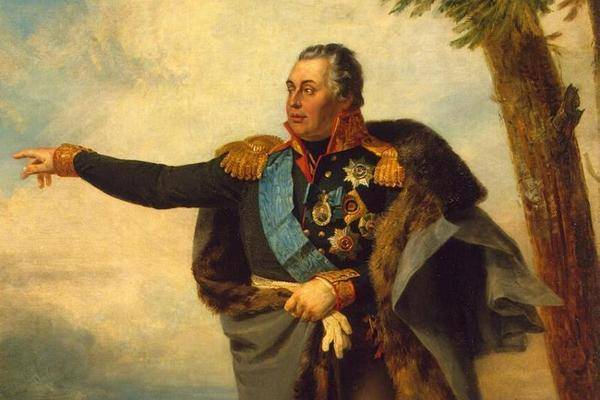Tarutinsky maneuver Kutuzov: saved Russia and Europe

“Moscow is the sponge that will suck Napoleon into itself”, - the commander-in-chief of the Russian army, Mikhail Kutuzov, despite the fact that most of the generals from among those taking part in the Council in Fili, were in favor of the battle for the French near Moscow, decided to leave the ancient capital.
It is difficult to say at what point Kutuzov conceived the plan of retreat, some historians suggest that before the Council. The main task in the implementation of this plan - the withdrawal along the Ryazan road, was to prevent the enemy from entering the southern regions of the country, where there were food supplies, Tula weapons factories and the Bryansk arsenal.
To do this, it was necessary to pass unnoticed from the Ryazan road, on which our army began the withdrawal of Moscow, to Kaluzhskaya, which was brilliantly done. The field marshal, fearing to be attacked on the march, took unprecedented security measures: the crossings were made only at night, and before entering the village, they sent scouts to find out from the peasants whether they were French.
Kutuzov was not deceived, Moscow sucked the Europeans, in anticipation of the surrender of Alexander I, they began to plunder, and the deceptive movements of the Russian divisions misinformed the French.
Thus, the departure of the two cavalry regiments along the Vladimir road was made by the French avant-garde of General Clapareda as a movement of the whole army. The units of General Sebastiani, the Cossack detachment of Yefremov, who continued the false retreat along the Ryazan road, were also deceived, they were taken for the Russian rearguard.
On September 21, Marshal Murat reported to Napoleon that the Russian army had escaped. Concerned Napoleon in her search sent large detachments that discovered the Russian army far from immediately.
Kutuzov’s maneuver lasted more than a week; during the march the field marshal had not only to fear the French, but also to restrain the “onslaught” of his own general. Chief of Staff Leonty Bennigsen (he was the main opponent of the abandonment of Moscow) offered to give the battle to the French avant-garde at the Red Pakhra, which was a risky operation.
But the report came in time from Lieutenant Colonel Garting, who reported that Tarutino had an excellent position, and the Russian army on October 3 camped near this village.
In Tarutino, which became the main stronghold of Russia, preparations began for action: the army was quickly replenished, a guerrilla war unfolded.
From Tarutino Michael Illarionovich wrote to the emperor: "Now, in the near distance from Moscow, having gathered my troops, I can expect an enemy with a firm foot, and so long as your Imperial Majesty’s army is intact and driven by famous bravery and our diligence, until then the loss of Moscow is not a loss of the Fatherland."
The French offensive against St. Petersburg was disrupted, and the Murat corps, which had attacked the Russian army near Tarutin on October 6, was defeated. From this day began the triumphal expulsion of Napoleon from the borders of the Fatherland.
In 1834, in Tarutino, a funds raised by peasants erected a monument with the inscription: "In this place, the Russian army led by Field Marshal Kutuzov, resilient, saved Russia and Europe."
Information